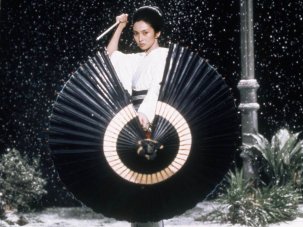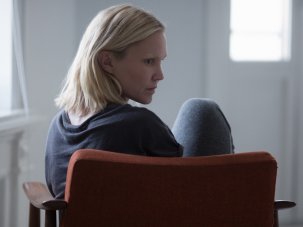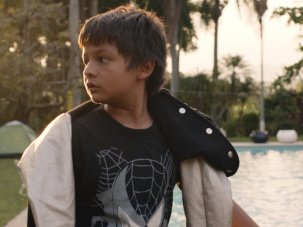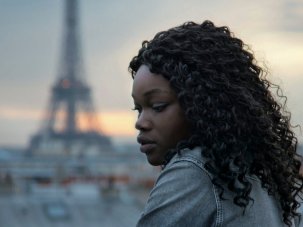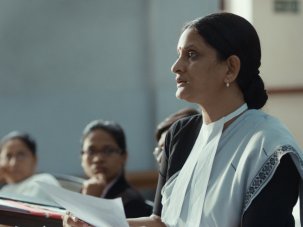- Three to see at LFF 2014 if you like ... Spanish-language cinema
- Three to see at LFF 2014 if you like ... Scandinavian cinema
- Three to see at LFF 2014 if you like ... French cinema
- Three to see at LFF 2014 if you like ... Indian and South Asian cinema
The new film from an established director …
Leviathan
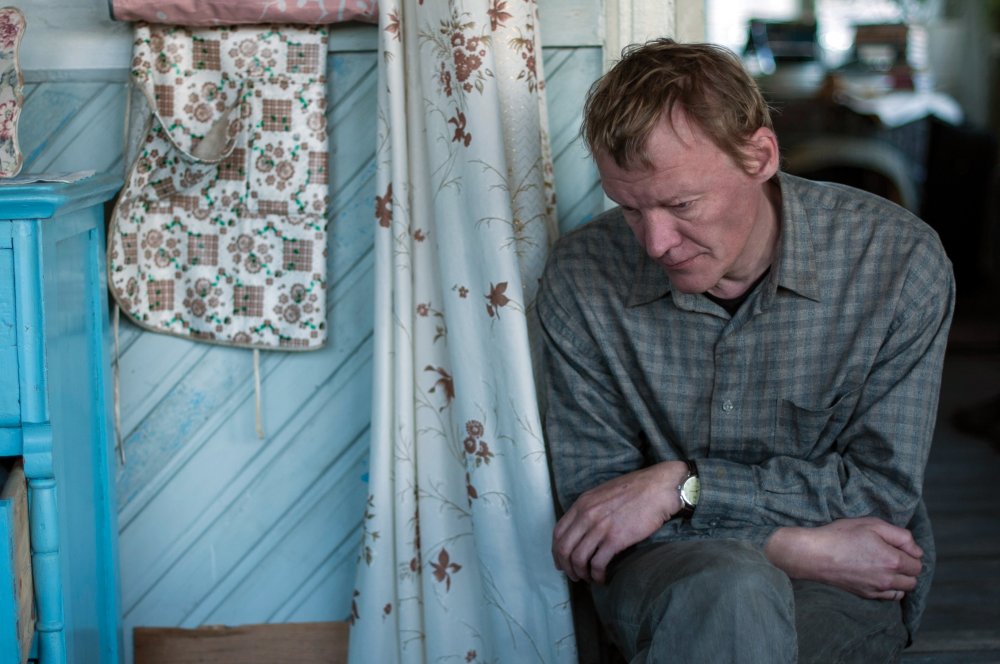
Leviathan (2014)
What’s it about?
Andrey Zvyagintsev’s new film won the best screenplay award at Cannes and was a close competitor for the coveted Palme d’Or. Set on the Kola Peninsula, not far from the Russian border with Finland, it tells of the conflict between Kolya, who owns a house on the seashore, and the mayor of a local town, who wants to purchase his land for redevelopment. Kolya enlists the help of a childhood friend, who now practices as a lawyer in Moscow. A domestic drama runs in parallel with the ‘political’ drama with Kolya eventually losing on both fronts.
Who made it?
Zvyagintsev initially studied acting, but is now recognised as one of Russia’s leading directors. His first film The Return (2003) was a surprise hit at the Venice Film Festival and this was followed by The Banishment (2007) and Elena (2011), both of which attracted wide attention and gained British releases. While perhaps misleadingly heralded as the successor to Andrei Tarkovsky, the depth, complexity and resonance of his work always takes us beyond the surface nature of his material.
What’s special about it?
It’s easy to interpret his latest film as a commentary on contemporary Russia, with the law serving those in power and religion providing a kind of ideological gloss. Yet, as Zvyaginstev is careful to point out, the story was actually inspired by events in the USA – the case of a steelworker in Colorado whose property was confiscated and subsequently drove a bulldozer into the town’s administrative buildings. Thus, his theme is also universal, with its symbolic content emphasised through the film’s remote setting and the visual symbol of the skeleton of a beached whale – its precise meaning left to our imagination.
Of course, to those with a nodding acquaintance with Thomas Hobbes, Leviathan also symbolises the state – and to follow the parallel, life also seems to be both nasty and brutish. But Leviathan is a film of many levels, and its meaning is left to the interaction between film and viewer.
Peter Hames
The breakthrough …
The Tribe (Plemya)
What’s it about?
In a Ukrainian school for young deaf people, new student Sergey (Grigoriy Fesenko) finds himself pulled into a strange, violent world as he’s enlisted as a foot soldier in the school’s system of organised crime, and gets into deep water when he falls for Anna (Yana Novikova), one of the girls he’s pimping for.
Who made it?
This is the first feature by 40-year-old Ukrainian director Myroslav Slaboshpytskiy, although he has been making highly rated shorts since 1995, the latest of them – 2012’s Nuclear Waste – winning the Silver Leopard in the Locarno Film Festival’s Pardi di domani section. In The Tribe, he collaborates with an extraordinary director of photography, Valentin Vasyanovich, and with a young cast of deaf non-professional actors.
What’s special about it?
The Tribe is one of the great discoveries of 2014 – as indicated by the three prizes it won in the Critics’ Week section in Cannes this year. It genuinely looks and sounds like no other film – for one thing, there’s no spoken dialogue, but only sign language, with no subtitles. This may seem like a wilful challenge to the audience, but for a story about deaf characters that takes place in their world, it means that most viewers will have to attune themselves to the way the story’s characters experience the universe – which leads to a radically different, but totally absorbing type of film language.
The Tribe is at once a love story, a brutal thriller and – with its long, complex takes – a mesmerisingly choreographed performance piece. It’s simply one of the most original films we’ve seen in a long time, one that rethinks the language of cinema’s sound and sight to dazzlingly fresh effect.
Jonathan Romney
The wild card …
The Way Out (Cesta Ven)
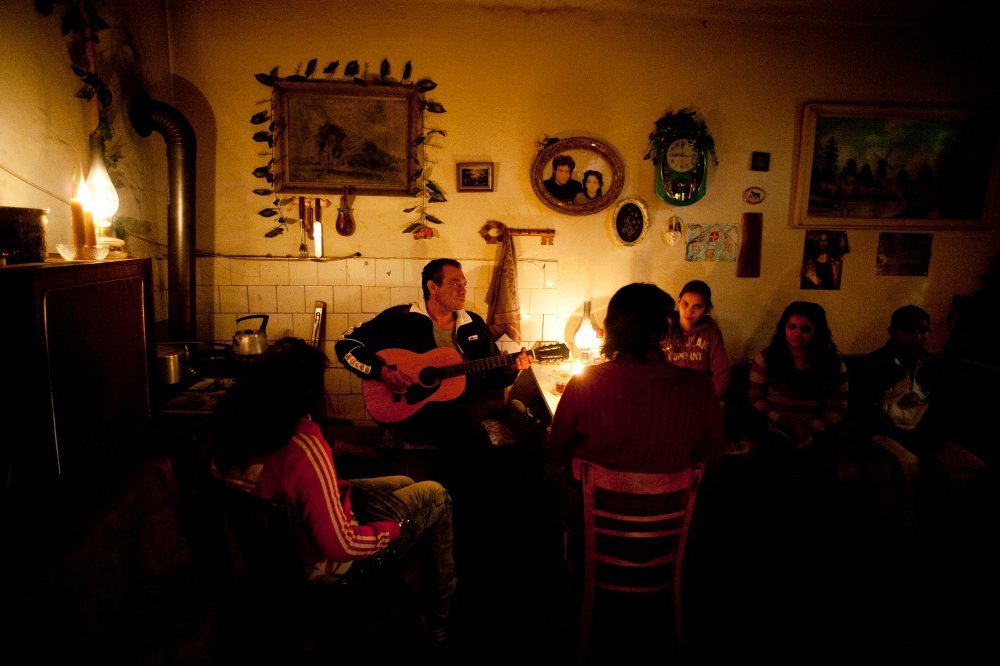
The Way Out (2014)
What’s it about?
Žaneta and her partner David live together with their daughter Janička in a prefabricated housing block. Their attempts to live a ‘normal’ life are frustrated by lack of qualifications, problems with the benefits system, and dependence on loans. Žaneta’s elder sister works as a prostitute and decides to embark on the robbery of a racist politician, who is also her client. David, it seems, will become a reluctant accomplice but Žaneta is able to follow a more principled path despite the multiple obstacles she must face.
Who made it?
This is the third feature film by Petr Václav, who made his debut with Marian, shown at the London Film Festival in 1996. This also had a Roma subject and dealt with the problem of Roma child brought up in a series of foster homes. In both Marian and The Way Out, he worked in collaboration with cinematographer Štěpán Kučera, who is son of director Věra Chytilová and cinematographer Jaroslav Kučera, who had been leading figures in the Czech film ‘wave’ of the 1960s. Václav subsequently moved to France, and his second feature, Parallel Worlds (2001), was co-scripted with the French novelist and screenwriter, Marie Desplechin. After a 10-year gap, during which he has worked and lived in France, The Way Out marked his return to Czech film and he is currently working on a new film, due for release in 2015.
What’s special about it?
The Roma theme has been regularly treated in Czech and Slovak cinema, notably by Zdeněk Tyc’s Brats (LFF, 2002), which told the story of a Czech couple who adopted and raised two Roma children, and the same director’s El Paso (2009). There have also been some remarkable documentaries on Roma singers, including Mira Erdevički’s Black and White in Colour (2000) and Miroslav Janek’s Vierka (LFF, 2005). Slovak director Martin Šulík’s Gypsy (2011) was another notable contribution. The Way Out, while using a non-professional cast (Václav interviewed around 3,000) and authentic locations, scores by adopting a dramatic approach to its subject, featuring a strong performance by Klaudia Dudová in the central role, and a classical style of direction that lifts it out of the category of social realism.
Peter Hames



